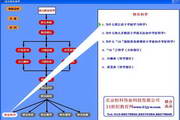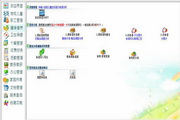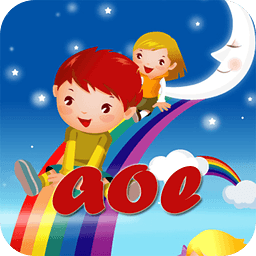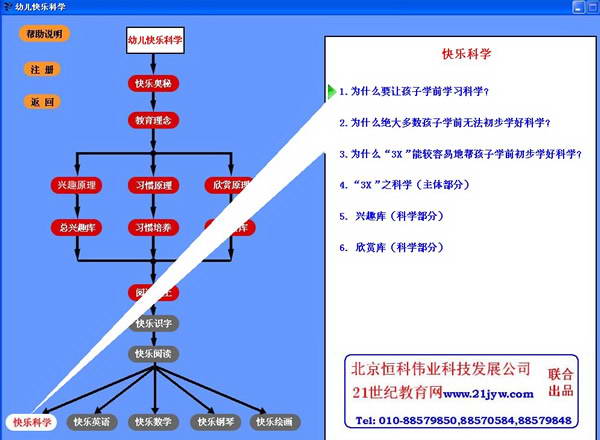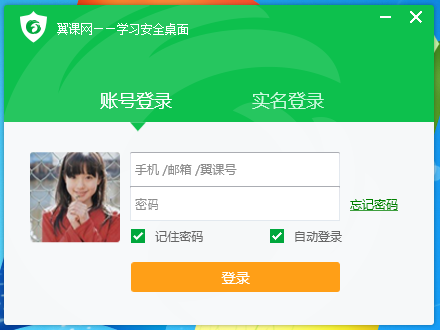For less than the price of a child's clothes or a toy, "Happy Science for Toddlers" can change a child's destiny and life, making them become outstanding talents.
The official version of "The Science of Happy Children", after seven years of research and based on 955 successful cases, has refined the world's original "3X" and "3X+Y" rules. Through the lowest success rules such as interest, habits, appreciation, etc., a universal method has been found to lead all children to success. This is also the secret of happy learning for children.
The purpose of children learning science in preschool is to cultivate their interest in science. The great achievements of scientists and inventors are almost always due to their strong interest in scientific exploration established in childhood.
Based on the current reality, this kind of interest in science can only be cultivated in children before school. It will be difficult to cultivate it after they enter school, because the current education in schools only pursues high scores and admission rates, and suppresses all children’s interests that have nothing to do with scores for the sake of high scores. Under such an education system, children’s interest in scientific exploration has no soil to grow. And the vast majority of our parents also regard their children's test scores as the only criterion for measuring educational achievements. For fear of affecting their children's learning, they prohibit any activities unrelated to learning, and even throw away the materials used by their children for scientific experiments as junk.
In fact, if children learn science before school and develop an interest in science, even if it cannot guide them to embark on the path of scientific exploration and become scientists in the future, it can at least ensure excellent performance in physics and chemistry in the future. Many students, especially girls, have a headache with physics and chemistry and find it particularly difficult to learn. This is because they have not been interested in science since childhood.
If children develop their interest in science before school, especially if they often do some scientific experiments, then many principles and phenomena in physics and chemistry classes have already been understood, and have even been verified by personal experiments, and learning will naturally be particularly easy. Moreover, the love for science can easily transfer to the love for physics and chemistry courses, and it is natural to achieve good results in physics and chemistry courses.
However, despite the importance of learning science early on for children, few children do it. This is because of the following three issues:
(1) Parents do not know how to cultivate their children’s interest in science first, let alone how to cultivate this interest. They will only use coercion, or even urging, beating and scolding to make children feel that science is extremely boring and cannot experience happiness from it. This passive and repressive state is destined to be unable to be maintained for a long time.
(2) Scientific learning is a long-term process. Parents do not know the importance of persistence, let alone how to make their children persist, so most children end up giving up halfway.
(3) Parents do not know how to motivate their children through appreciation. They will only complain and scold their children for being "stupid", severely damaging their children's self-confidence and destroying their interest in science.
"Happy Science for Toddlers" uses the "3X" rule, which is the first in China and has been developed and improved after seven years, to completely solve the above problems in three steps:
(1) Interest introduction door. There are 32 ways to cultivate children's interest in science in the "Interest Library" of "Happy Science". Regardless of whether the child is interested in science or not, these methods can first cultivate children's strong interest in science, turn "I want to learn" into "I want to learn", and make learning science particularly interesting and efficient, getting twice the result with half the effort.
In the interest library (science section), there are many interesting science experiments, such as "Volcano Eruption in a Bowl", which can create a spectacular volcano eruption by filling a bowl and a glass bottle with cold water and hot water respectively; "The Power of a Cannon": using a cardboard cylinder with both ends closed, you can do it Create a simple "cannon", which is powerful enough to extinguish the flame of a candle 3 meters away and emit beautiful and strange smoke rings; "fingerprint reappearance", which allows the left fingerprints to reappear; a "secret letter" written with garlic juice; turn ordinary eggs into square eggs, etc.
In short, these interesting science experiments in the interest library (science section) are full of fun and contain endless mysteries, which can greatly stimulate children's curiosity and interest in scientific exploration. During the experiment, children's hands-on ability can also be greatly improved. If parents can do experiments with their children, it will not only make their children's lives more interesting, but also strengthen the parent-child relationship.
(2) Habits strengthen the foundation. If you want to succeed in anything, you must persist to the end. Through the many ingenious and professional methods provided by "Happy Science", children's interest in science can be quickly transformed into a habit. Once you form the habit of studying science, just like getting up every day to wash your face and brush your teeth, it becomes a subconscious behavior and you can stick to it for a long time. In this way, you only need to spend a small amount of time on science every day, but the long-term cumulative effect is amazing.
(3) Appreciate the stimulating potential. In the "Appreciation Library" of "Happy Science", there are 25 appreciation methods for children to learn science. Through these appreciation methods, parents can stimulate their children's huge potential and build strong self-confidence. While strengthening their interest in science, they can also assist in the formation of the habit of learning science every day, so that children can persevere for a long time and achieve final success even in the face of boredom and difficulty.
With "Happy Science for Toddlers", parents will be pleasantly surprised to find that scientific knowledge and innovative skills that their children were neither interested in nor able to master before school can now be easily learned and mastered - because the software provides many unique methods on interests, habits, and appreciation, which can effectively stimulate children's interest and potential in science, and skillfully transform interests into habits, so that children can easily stick to it and persevere until they succeed.
